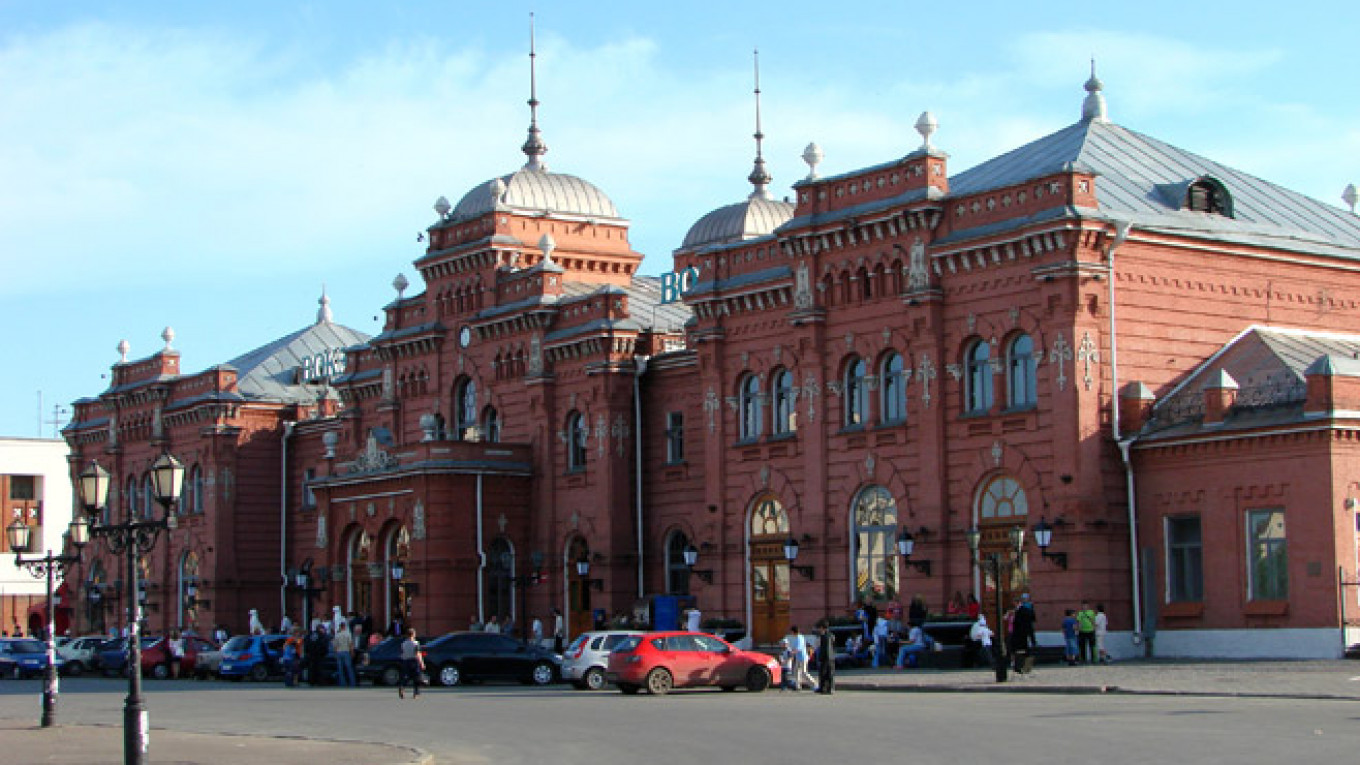China is ready to invest 400 billion rubles ($10.7 billion) in the construction of a high-speed railway linking Moscow with Kazan, a top Russian rail official said Tuesday, as the Kremlin looks to further strengthen its economic ties with Beijing to offset the effects of its standoff with the West over Ukraine.
China Development Bank, which in April confirmed plans to invest $5 billion in Russia's Far East, is among the parties ready to stump up the funds for the 800-kilometer-long line, said Alexander Misharin, first deputy president of state-owned monopoly Russian Railways, according to Prime news agency.
Trains with a top speed of 400 kilometers per hour will service the line, cutting the journey time from about 14 hours on regular trains to just 3 1/2 hours. It was slated to be built by 2018 — in time for the football World Cup, for which Kazan is one of the host cities. However, delays with design tenders and the diversion of state funds for the development of Crimea, which Russia annexed from Ukraine in March, have hampered progress.
The overall cost of the project, including the purchase of high-speed trains and the modernization of railway stations, has been set at 1 trillion rubles ($29 billion). If Russia secures the 400 billion rubles, it will not need to raise extra funds in the form of loans or private investments, Misharin said.
Though the question of financing is not yet settled, Chinese partners are already involved in the project. A Chinese-Russian working group is currently considering Chinese proposals for the project's financial model, as well as technological solutions.
Russia appears to have plenty of Chinese options should the deal with the bank come to naught. Russian Railways, which will operate the rail link, earlier this year held talks with the China Investment Corporation, which is also thinking about taking part in a project to create an intercontinental ground corridor between Moscow and Beijing. The company has also met with representatives from Chinese railway engineering company CREC and its subsidiary CREEC.
But regardless of the scale of foreign investment in the railway, the Russian government will have the final say in all questions relating to construction, Misharin added.
Sanctions imposed on Russia by the U.S. and EU over its role in the Ukraine crisis have prompted Moscow to seek closer political and trade relations with Asia. Its overtures toward China have been particularly fruitful, with a $400 billion gas supply deal signed in May, and on Tuesday both sides agreed to boost trade in local currencies, while Russian state enterprise Rusnano said it had invited China to create a joint fund for investment in nanotechnology.?
A Message from The Moscow Times:
Dear readers,
We are facing unprecedented challenges. Russia's Prosecutor General's Office has designated The Moscow Times as an "undesirable" organization, criminalizing our work and putting our staff at risk of prosecution. This follows our earlier unjust labeling as a "foreign agent."
These actions are direct attempts to silence independent journalism in Russia. The authorities claim our work "discredits the decisions of the Russian leadership." We see things differently: we strive to provide accurate, unbiased reporting on Russia.
We, the journalists of The Moscow Times, refuse to be silenced. But to continue our work, we need your help.
Your support, no matter how small, makes a world of difference. If you can, please support us monthly starting from just $2. It's quick to set up, and every contribution makes a significant impact.
By supporting The Moscow Times, you're defending open, independent journalism in the face of repression. Thank you for standing with us.
Remind me later.


